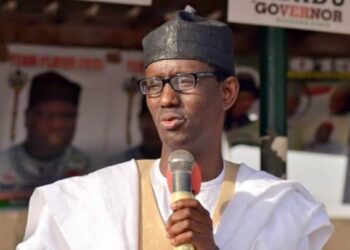High-profile persons from the northern part of the country, have expressed worry over the dismal state of the region, which they believe, has weighed heavily on the overall tribulation of Nigeria as a nation.
Eleven leaders associated with the Senior Working Group signed a statement, titled: “For the Wellbeing of Nigerians,” which highlighted immediate crises in the North and how they stack up with challenges in other parts of the country to cast the country in its present state.
Some of the leaders include the Sultan of Sokoto, Sa’ad Abubakar III; Catholic Archbishop of Abuja, John Cardinal Onaiyekan; former Chief of Defence Staff, Martin Luther Agwai, and a former Ambassador to Botswana, Fatima Balla.
Others are a former governorship aspirant in Katsina state, Usman Bugaje; a former Minister of External Affairs, Ibrahim Gambari, a humanitarian expert, Nguyan Feese, and a pro-democracy advocate, Jibrin Ibrahim.
Also in attendance are: Aisha Muhammed-Oyebode, Chris Kwaja and former INEC
chairman, Attahiru Jega.
The signatories said: “The current state of Nigeria reflects a hotbed of internal conflicts that threaten the sovereignty and legitimacy of the nation-state. The Biafra agitations in the South-east, rising communal violence across the country, the Boko Haram crisis raging in
the North-east, and the surge in armed robbery and kidnappings are all tale signs of fragility within the security apparatus of the country.
“The drivers of these varying conflicts differ in nature, but find their remedy in the constitutional responsibility of the state i.e. the protection of lives and property, provision of education; in short, creating an enabling environment that safeguards the flourishing of citizens and those within its borders.”
“The state’s weaknesses in effectively addressing these sources of instability, perpetuate a cycle of reoccurring violent conflicts in communities across the country, more often in northern Nigeria. The fragility of the North, particularly the North-east, in terms of the
measure of its human development, manifests around issues such as, high illiteracy, high unemployment rates, and above all, the highest levels of inequality and poverty.
“Although inequality persists across Nigeria; it presents a significant challenge in the north because this region contains 19 of Nigeria’s 36 states, occupies almost 70 per cent of the landmass of the country, and is home to different ethnic and religious communities.
“This growing gap between the rich and poor, beyond poverty itself, generates anti-government sentiments that are easily manipulated to fuel civil unrest, and drive wedges between communities that have co-existed in the region for decades.
“This, of course, indicates the lapses of the government over time in living up to its responsibilities, which has opened the floodgates for those challenging the legitimacy of the state to offer their own alternatives on how to ‘save the people’.
“The underlining narrative of Boko Haram is the offer of an alternative state that not only postulates to be theologically legitimate, but also seeks out the forgotten welfare of the people. The cascading problems facing the north share a common thread that runs through all the 19 states.
“However, this common problem provides an opportunity for common solutions that re-imagine inter-state cooperation and collaboration that identify failing public goods in order to provide joint solutions and offer the people greater alternatives to competing narratives.
“The North must work together to solve its common problems for the greater good of Nigeria; state governors particularly, must be willing to reach out to neighbouring governors and begin to deliberate on common policies that address common setbacks.”



